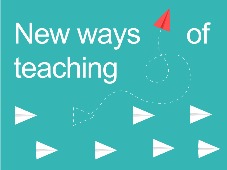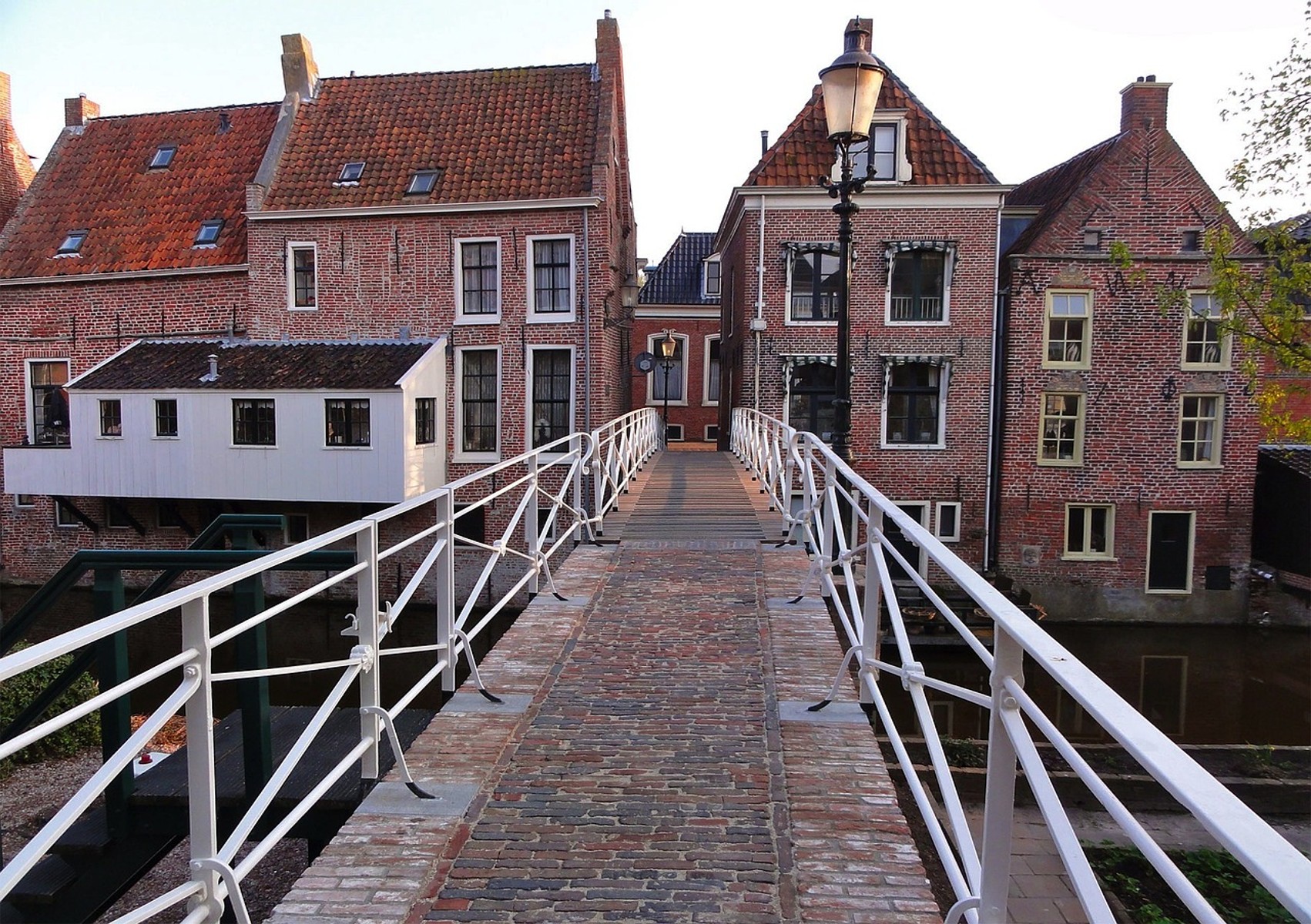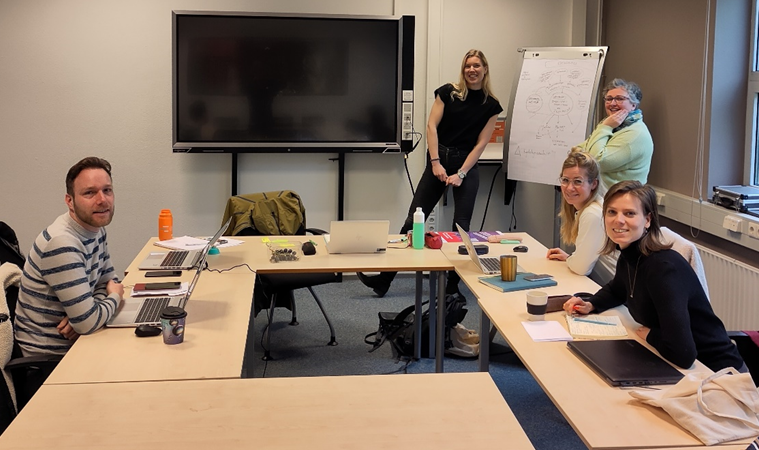Stepping off the beaten track in Appingedam

In New Ways of Teaching lecturers talk about their innovative, creative, and effective teaching initiatives. From unusual teaching methods to new technologies — anything is possible. How do these ideas arise and what impact do they have on students?
This month: immersion instead of pure theory in the Minor 'Expedition the Healthy North'.
What is the best way to identify and address complex regional health challenges? According to Hedwig Boer (Faculty of Medical Sciences / UMCG), Joke Fleer (Faculty of Medical Sciences / UMCG), and Katrien Colman (lecturer and researcher at the Hanze University of Applied Sciences) the answer is the innovative Minor 'Expedition the Healthy North' with a transdisciplinary approach. And all of this in Appingedam involving not only students and lecturers, but also partners from Appingedam and its residents.
To Appingedam
In Appingedam, the Hanze University of Applied Sciences has the Innovation Workshop (IWP) More Healthy Years for Appingedam (MGJA). The IWP is in the middle of the regional context and is part of a network dedicated to repositioning health in society. An important principle in our teaching is that we connect to practice. By joining the IWP, we become part of the network and can make the practice context a leading element in learning.
Unity creates power
The Minor 'Expedition the Healthy North' is part of a learning community focused on More Healthy Years in the Appingedam region. The University of Groningen, the Hanze University of Applied Sciences, and Noorderpoort, together with the municipality and companies from this region, are part of this regional learning community in Appingedam. Students participating in the Minor join this learning network, which focuses on the following question: How can Appingedam be and remain a healthy region?
The curriculum facilitates learning in a transdisciplinary learning environment, that is a learning environment where the ‘boundaries’ between the parties involved are blurred because they matter less. All participants, including educational institutions but also stakeholders such as the municipality and its residents, have their own unique input. Diversity is highly valued within the network, but not yet taken for granted. Learning to collaborate within different disciplines and regularly reflecting on this is therefore an important part of the curriculum.

Off the beaten track
In this teaching method, the focus is considerably less on knowledge acquisition in the traditional sense. The learning outcomes strongly focus on enhancing the generic skills you need as a professional working in a complex and diverse environment. This is made possible within the Minor by learning together outside the classroom. Students who took the Minor indicate they learned how to conduct research in practice with and for people from the region.
We had expected that the differences between students from vocational education, universities of applied sciences, and research universities would be significant and that this could potentially hinder collaboration. In practice, this turned out much better than expected, and there was actually a lot of appreciation for each other’s knowledge and skills. Moreover, students could also better see the value of their own knowledge and skills. Time-wise, it was a challenge every now and then to find common learning moments because students had different timetables. This, of course, greatly impacts the collaboration: how do you organize it in such a way that the team can continue to work together effectively? For the future, it is therefore important to pay more attention to the conditions for participating in this type of teaching.
A leap of faith
Although not everything went perfectly, the students described it as a valuable learning experience. It is different from what they are used to. There is a strong focus on personal and professional development, and students have become more aware of how they relate to ‘the real world’. We challenge students to explore the unknown and at the same time, we offer them guidance by clearly communicating our expectations.
Reactions to the city of Appingedam are quite mixed. Students from Groningen might feel some hesitation about travelling to Appingedam, but once they participate, they actually find it interesting to get to know a new environment. Moreover, there are also students who come from the surrounding area, making them a particularly valuable addition to the team due to their own experience within that context.
Watch a testimonial of students who participated in the Minor ‘Expedition the Healthy’ North here .
Building the learning community based at the IWP MGJA requires a continuous effort to intertwine teaching and practice. Fortunately, there are increasingly more stakeholders who want to be more closely involved and see the collaboration with students as valuable. Those involved mention, for example, that they expand their own network because the students connect them with each other through interviews. In addition, the students try out new working methods for many stakeholders which also leads to new insights.
Challenges in the future
It remains a real challenge to truly connect students with residents, especially in a way that benefits the residents and not just as a means for them to provide input. Another challenge lies in the transfer of the knowledge that was developed with and in practice. The intention is not for the developed ideas to end up in a drawer, but for something to actually be done with them. These are points that we will definitely take into account as a learning community and also want to address together with the stakeholders from the very beginning.

More information
-
Read other editions of New Ways of Teaching
| Last modified: | 22 October 2024 11.12 a.m. |
More news
-
24 March 2025
UG 28th in World's Most International Universities 2025 rankings
The University of Groningen has been ranked 28th in the World's Most International Universities 2025 by Times Higher Education. With this, the UG leaves behind institutions such as MIT and Harvard. The 28th place marks an increase of five places: in...
-
05 March 2025
Women in Science
The UG celebrates International Women’s Day with a special photo series: Women in Science.
-
16 December 2024
Jouke de Vries: ‘The University will have to be flexible’
2024 was a festive year for the University of Groningen. In this podcast, Jouke de Vries, the chair of the Executive Board, looks back.
